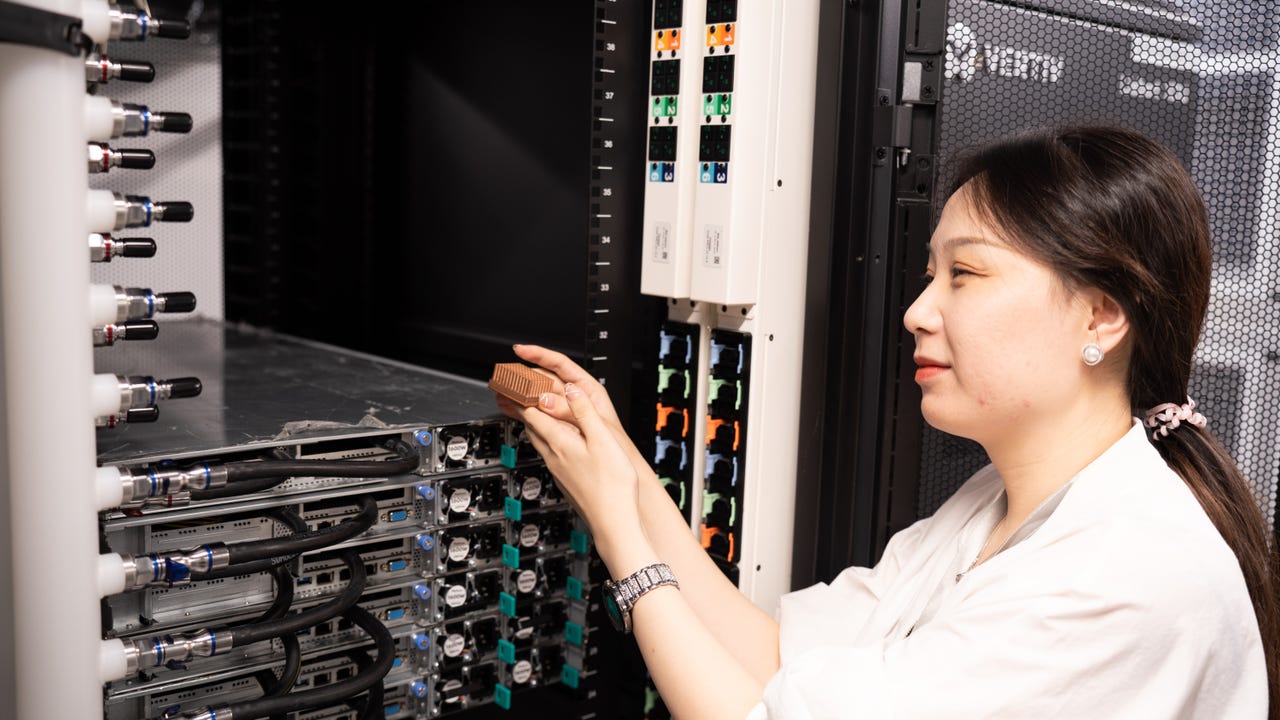Tropical datacenter now up and running in Singapore


Liquid-cooled heat sink with air-cooled fin array.
A datacenter set up to operate in tropical climates is now up and running in Singapore, offering a facility for researchers and industry players to develop energy-efficient cooling technologies.
Touted as the world's first datacenter testbed for tropical environments, the new site is hosted by the National University of Singapore's College of Design and Engineering (NUS CDE), on its Kent Ridge campus. The university is leading the initiative jointly with fellow local institution, Nanyang Technological University (NTU).
Also: Tech and sustainability: How companies are getting started
Funded by the National Research Foundation (NRF), the project is part of the country's Research, Innovation and Enterprise 2025 goal to position Singapore as a center for green products and services.
The new "full-scale live" datacenter facility aims to "bridge the gap" between research and practical applications, bringing together researchers and industry partners to "fast-track" the adoption of sustainable cooling solutions built for tropical climates, the three organizations said in a joint statement.
They hope these collaborative efforts will establish new sustainability standards for datacenter operations in the tropics.
Also: How to easily install a cloud service at home in an hour or less
The objective is to demonstrate several key outcomes by mid-2024, including reducing energy consumption by up to 40%, and cutting water usage by 30% to 40%. The testbed will also look to reduce carbon dioxide emissions by 40% to less than 0.54 million tons per year, as well as achieve power usage effectiveness (PUE) of less than 1.2, with a combination of air and liquid cooling.
A whitepaper with recommendations on optimum datacenter design and operations is slated for release in the fourth quarter of next year.
Datacenters are critical infrastructures in digital economies, but have a ferocious appetite for electricity, particularly in hot and humit climates such as Singapore. On average, 40% of a datacenter's energy consumption is used to power its cooling and ventilation systems.
Efficient cooling technologies are, therefore, key to cutting operational costs and reducing the environmental impact of datacenters.
NTU's vice president of industry Lam Khin Yong said: "The Sustainable Tropical Data Centre Testbed presents a sustainable solution for the operation and maintenance of data centers. As the world's first tropical climate data center testbed, the [facility] sets a new standard, not just for Singapore, but as a global benchmark for the intersection of cutting-edge technology, environmental responsibility, and operational efficiency in datacenter infrastructure."
Also: The top cloud storage services you can buy
NRF's director of urban solutions and sustainability, Ni De En, added: "The [testbed] brings together researchers and companies to drive innovations in cooling technologies and improve the sustainability of data centres in our region. Such industry R&D platforms accelerate the translation and commercialization of research, in support of our climate goals."
Since its inception in June 2021, the initiative has involved 20 industry partners that have contributed various technologies and collaborated in its development. These partners include Intel, Keppel Data Centres, Meta, Shell, and Schneider Electric.
Sitting on a floor area of 770 square metres, the datacenter testbed currently supports five research projects. These projects look to identify ways to raise the recommended temperature of conventional data centers and "sweet spots" for sustainable cooling solutions, said the facility's programme director, Lee Poh Seng, who is an associate professor from NUS CDE's Department of Mechanical Engineering.
Singapore released operating standards in June that it said would optimize energy efficiency in datacenters that are located in tropical climates. Developed by the Infocomm Media Development Authority, the recommended standards offer a roadmap to increase datacenter operating temperatures to 26 degrees Celsius and above. The standards can potentially yield energy savings of between 2% and 5% for every one degree Celsius increase, the government agency said, citing research from the University of Toronto.